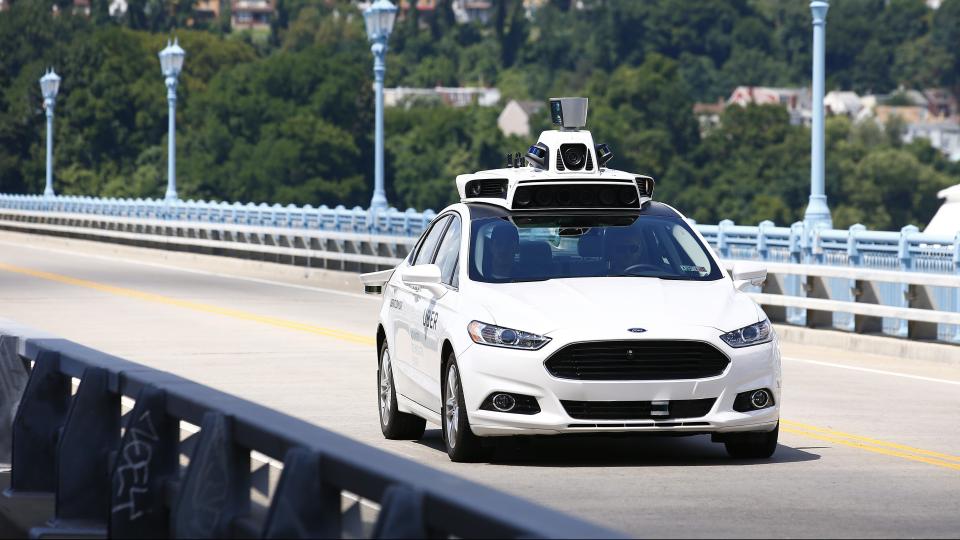The big legal battle that won't go away anytime soon for Uber
2017 is proving a scandal-ridden year for Uber, with workplace sexual harassment allegations and the departure of CEO Travis Kalanick. But there’s one scandal likely to hound the ride-sharing startup for months to come: a legal battle with Waymo, the self-driving car company spun-out from Google (GOOG, GOOGL).
The case pits Uber’s self-driving car technology against Waymo’s. According to the lawsuit, former Google engineer Anthony Levandowski downloaded nearly 14,000 confidential files in late 2015 related to Google’s self-driving car technology before leaving the company to co-found Otto, a startup that developed self-driving technology for truck rigs. Uber then acquired Otto for a reported $680 million in August 2016.
Waymo claims the documents Levandowski downloaded were used to help develop Uber’s own self-driving car technology and misappropriates its trade secrets, particularly those related to Google’s distance-measuring LiDAR technology.
Carl Tobias, a professor at the University of Richmond School of Law, argued the way Waymo has already conducted its litigation suggests there may potentially be sufficient evidence to corroborate Waymo’s claims. If true, Waymo has little reason to settle.
“I just think Waymo is going to turn down the screws,” Tobias said. “They’re not going to settle reasonably or comfortably or for some small amount, if at all.”

While the lawsuit is scheduled to go to trial some time in October, litigation around the case is evolving. This May, a federal judge in California judge referred the case to the US Attorney’s Office for an investigation into possible trade secrets theft. On a conference call last week, Uber told investors it was engaged in court-mandated settlement talks with Waymo’s parent company, Alphabet Inc. Following one of those settlement meetings, Waymo agreed to drop three out of four of its patent claims.
Why it’s in Uber’s best interest to settle
It’s unclear whether Uber and Waymo will reach a settlement agreement before both parties go to trial, but Tobias contended it’s in Uber’s best interest to settle.
“They don’t need the trouble of this litigation,” Tobias said. “There’s too much going on at Uber right now to focus on this as an ‘add-on.’”
Tobias has a point. This year alone, Uber saw an employee exodus, including the resignation of CEO Travis Kalanick following months of controversy around alleged sexual harassment at the company. Without a chief executive, and with Uber attempting to improve its standing externally and internally, Uber doesn’t need the added headache — and bad publicity — involved with a lengthy trial, which it could very well lose.
A Waymo spokesperson told Yahoo Finance the company has compelling evidence to back up its claims, although they did not go into specifics.
“We initiated legal action because we came across evidence showing stolen Waymo files made their way into Uber’s technology, and despite Uber’s attempt to distract with constantly changing storylines, Waymo has continued to build its case with more evidence uncovered during expedited discovery,” a Waymo spokesperson told Yahoo Finance. “We believe we have strong evidence to put in front of a jury, and we look forward to our day in court.”
Uber declined to comment for the purposes for this story.
The lawsuit could have serious implications, particularly for Uber, depending on the outcome. If Uber and Waymo settle, the public probably won’t learn much, given settlement terms will likely be confidential, according to Tobias.
But if the case goes to trial and Waymo wins, Uber could face damages that eclipse the $680 million it originally paid to acquire Otto and Levandowski in 2016. (Uber fired Levandowski in May.) A verdict in Waymo’s favor could also deal a big blow to the research and development of Uber’s self-driving cars, which are already deployed in Pittsburgh. As for Uber’s reputation? It could be even more tarnished and battered than it already is.
—
JP Mangalindan is a senior correspondent for Yahoo Finance covering the intersection of tech and business. Email story tips and musings to jpm@oath.com. Follow him on Twitter or Facebook.
More from JP:
Here’s what we know about Apple’s glistening new $5 billion campus
Inside the Modernist: an exclusive club for Silicon Valley’s tech elite
Ashton Kutcher: We’re getting close to the point where acting can be automated
Uber HR chief’s comments on ‘taking shots’ not wise move: Stanford professor
LEAKED AUDIO: Uber’s all-hands meeting had some uncomfortable moments


